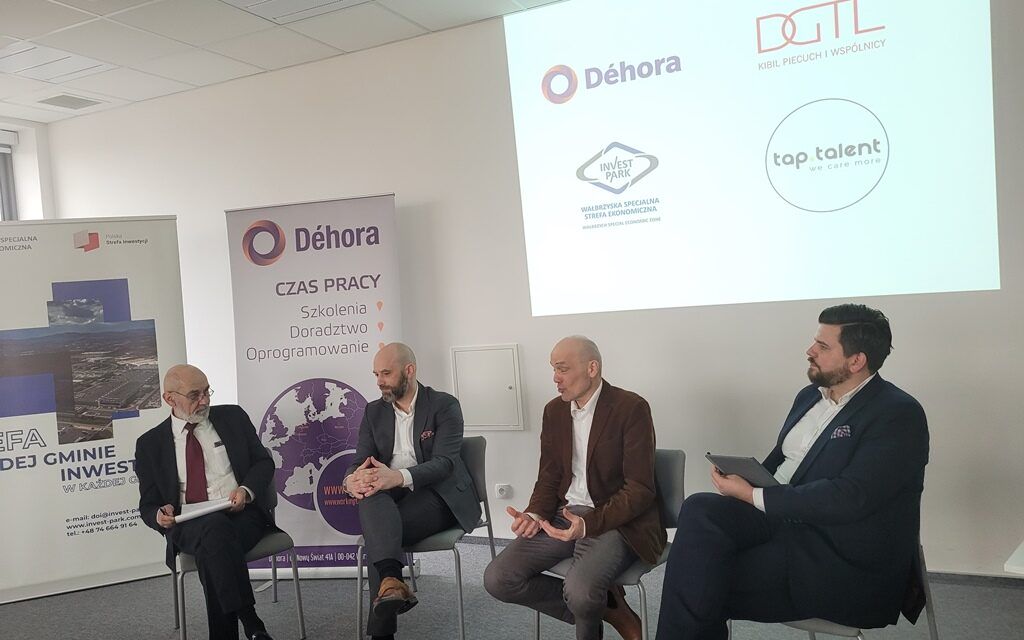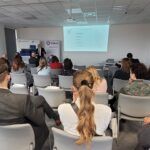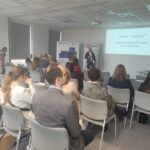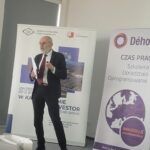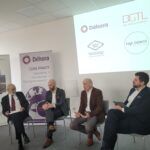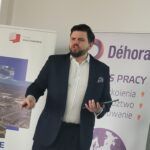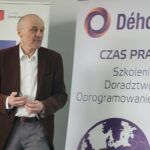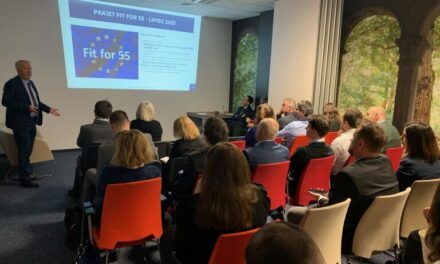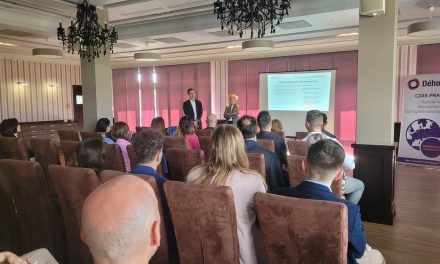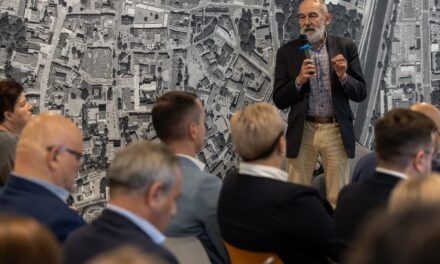BPCC members – mainly HR directors and managers from Lower Silesia – met at the Lower Silesian Park of Innovation and Science with the Wałbrzych Special Economic Zone on 9 March 2023.
The workshop-format event focused on working-time planning as a solution to issues such as employee burn-out, staff retention, productivity and absenteeism. Working time was looked in from the organisational and legal perspective, and placed in a macroeconomic and labour-market context.
Practical questions, relating to effective planning of working time, as well as IT solutions – algorithms that match employees’ needs with those of production plans – were covered during the interactive workshop session.
Participants were welcomed by Patrycja Pawlak from the Wałbrzych Special Economic Zone’s Invest-Park, and the BPCC’s director for Western Poland, Ilona Chodorowska
Gracjan Góźdź from TapTalent presented an overview of the latest trends in HR in a dynamically – and demographically – changing labour market. He talked about the benefits and challenges of remote work, the entrance of Gen Z into the workplace, and the use of technology in the recruitment process, which is moving more and more online. He also said that the notion of work-life balance was now becoming one of work-life integration.
The BPCC’s chief advisor, Michael Dembinski, presented the macroeconomic prospects for Poland for the coming year, a period of great uncertainty with the Russian aggression in Ukraine, the parliamentary elections in the autumn and the fallout from the pandemic. Inflation was another ‘known unknown’, he said, whether it would fall or remain in double-digit territory.
Planning working time – the main topic for the day – was covered by Dr Paweł Mlicki, senior advisor and mediator in Déhora and Michał Kibil, senior partner at the DGTL law firm. They stressed how time was becoming increasingly important to Poles, even at the expense of money, and the need for a radical reassessment for how employers approach the issue of working time. Dr Mlicki and Mr Kibil conducted an interactive workshop among participants, based on their practical experience of implementing key performance indicators for working time planning.
A panel discussion moderated by Michael Dembinski considered issues covered in the presentations with input from the audience, and answered questions about salary transparency, prospect for a four-day working week, the impact of artificial intelligence on the labour market, sick leave and full-remote work.
The meeting was arranged to maximise opportunities for networking and exchanging best practice, and thanks for excellent catering organised by InvestPark, participants found the event enjoyable as well as thoroughly useful.






